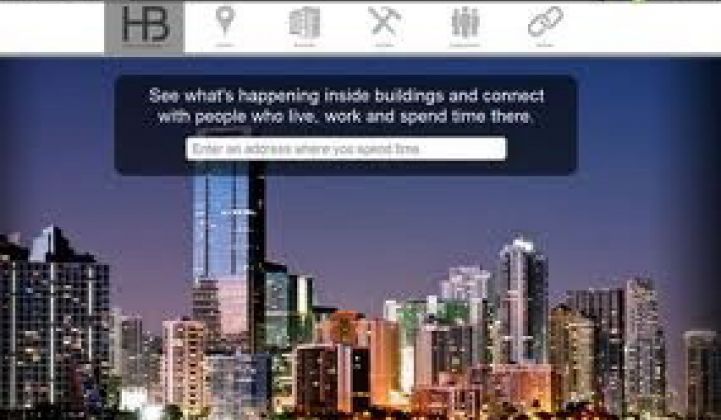That’s the idea behind Honest Buildings, the startup that wants to give commercial properties the same kind of online networking exposure that LinkedIn gives people. On Wednesday, the New York City-based startup hit a milestone on that front, reporting that it had collected data on 250,000 commercial and mixed‐use buildings in its home city, representing more than 4 billion square feet of property.
That’s a lot of building data: square footage, building ownership and management, projects and renovations performed on the building, and on the green front, its LEED or Energy Star status. While much of the data comes from a variety of public sources, it also draws on relationships with property owners and management firms to collect proprietary information as well, Josh Boltuch, chief marketing officer, said.
New York has been a particular focus for the startup, where it has signed up thousands of building owners and management firms, along with architects, engineers, contractors and other building services businesses. Honest Buildings also has projects underway in San Francisco and partnerships with the Environmental Defense Fund, and has raised an undisclosed seed round from Spring Ventures partners Nick Allen and Sunil Paul and a group of angel investors.
While much of the site’s content is free, the main money-making proposition is to sell premium subscription services to businesses that serve property owners. In that sense, it’s a massive, open-book referral and data service for a host of building-related business relationships, not necessarily all aimed at greening buildings as a main goal.
But co-founder and CEO Riggs Kubiak has said that his property management experience, including his multi-year stint as sustainability officer for property management giant Tishman Speyer, led him to create the site as a way to push the industry to put its money where its mouth is on the green front.
So how does creating such a database drive more green building investment? Boltuch mentioned a few avenues, such as providing green businesses a single source of properties to peruse for likely retrofits or services.
As more sources of data on a building’s green credentials become available, that could expand the usefulness of the site for driving efficiency. New York City’s Local Law 84 requires all buildings over 50,000 square feet to report annual energy benchmarks, and Honest Buildings is working with the city on integrating that data as it comes out, Boltuch said.
It will be interesting to see how a platform like Honest Buildings might compare to the more energy-specific services being developed by the likes of Retroficiency and FirstFuel, startups that use utility and building data to compile energy profiles of buildings. Getting true building energy data into the mix will be the critical next step for the platform's green credentials.
Certainly getting the basic information up is an important start -- particularly when it reveals where building owners aren’t walking their green talk. Honest Building’s San Francisco project, for example, has shown that a good number of the city’s buildings that are required to provide basic energy data to the city haven’t yet complied with the ordinance. It’s all good and well to provide the carrots to encourage building owners to go green -- but the stick of shaming them into greater efforts can also work wonders.



